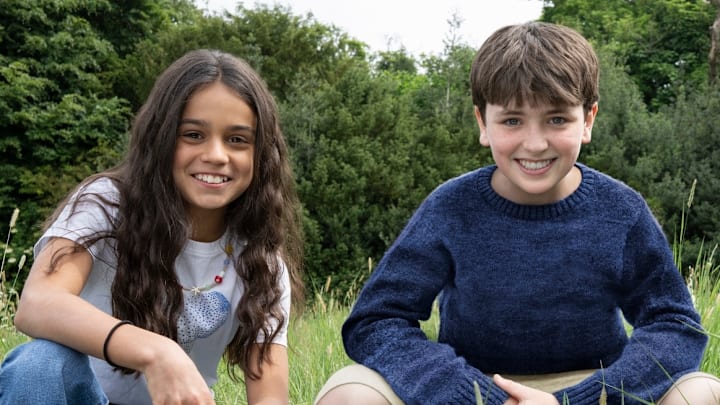One of the most anticipated television programs in years is finally starting filming this year, likely around the end of summer. That show, of course, is Harry Potter. The franchise as a whole has become divisive these days, with original author J.K. Rowling sparking controversy with her political and human rights stances. Still, the new HBO series is expected to bring in billions of dollars.
In fact, the show is projected to be the most costly show in history, at over $4.2 billion over the course of the entire show, or just over $100 million per episode. With that kind of cost, Warner Bros. studio must be expecting to gross a great deal in profit as a result, in part, of sky-high viewership. For it to be successful, though, they need child actors: a lot of them.
Given that the premise of the show is to follow multiple students at the Hogwarts School of Witchcraft and Wizardry, it makes sense that a large focus of casting is on child actors who will reprise major roles over the course of the seven seasons. This is an exciting, but tall, task to ask of these young, budding superstars, and their lives are about to dramatically change.
Harry Potter actors committed to the next 10 years

The Harry Potter television series, much like the movie adaptations, is set to film over the course of many years, as the cast ages in the same vein as they do in the books. In fact, it is expected that the series will film over the course of the next decade, meaning the youngest stars, many ages 9 to 11, will spend half their life, including their entire teenagehood, adapting to the life of actors in a studio in London instead of in their current classtooms with their current friends.
This means that the film studio will have to design a sort of school on set, with hired tutors who can help the children keep to their educational schedule. The Harry Potter series adds some challenges, though. Because the series is built around the kids, and the kids are the main stars in almost every scene, they will have to be on set often.
The Guardian spoke to some involved in the education side of the industry to hear more directly about some of the issues the kids may face. Here's what Jo Auston said:
“I can’t imagine many days filming when you haven’t got any children on set, so I think they are going to be in there most of the time and working very hard. They will be out of school for a period of six to nine months to film and complete each series.”
Judith Phillips, a tutor for the original film series, offered her insight as well.
“Time is money on the film set, so when you get a knock on the door saying they need your pupil on set, it’s not a case of finishing up what you’re working on – it’s put your pen down and go."
Luckily, the two say, the children always work hard and want to learn.
According to the report, a few people will ultimately be involved in establishing the school routine for all the child actors on set, of which there are expected to be around 30 total.
Nathaniel McCullagh, a co-founder of Simply Learning Tuition, explained, “They’ll probably have a school at Leavesden that is essentially a series of classrooms with subject tutors, and they’ll wheel the children in and out of class just like a mini-school."
“When you start building that level of establishment, you’ll need management – a head teacher, a director of studies, individual tutors. It’s far more complex than a typical on-set tutor who is tasked with looking after a couple of kids for a few hours each day for a month," he concluded.
Later on, he also explained the unique challenge that the tutors and chaperones on set are going to face.
“The problem with being on a film set is that there’s never enough time. It doesn’t matter how much money you’ve got behind the film; things go wrong. The lighting changes, the actors don’t quite pull off the performance they need, or the director wants something different. So there’s always the temptation to say to a child: ‘Can you just do another take?’ That’s when the chaperone has to step in and say: ‘No’."
“If children are on set being filmed two hours a day, they’ll be in makeup and wardrobe for another two hours. They’ll be transported from wherever they are staying, but as soon as they get in the car or step into makeup, the clock starts ticking. It’s an enormous race against time to try and get them in front of the camera and do some acting.”
Whether right or not, these children's lives are about to change dramatically. Academics are no longer the focus. Instead, the job takes the front seat, and education will fit as it can. Moreover, they will be missing out on some major childhood milestones, such as high school prom, field trips, social events, sports, and even just dating and hanging out. It is a major commitment, and one that has both its benefits and drawbacks.
For many of the kids from the original film series, the opportunity launched their careers and helped them gain prominent roles in many other movies thereafter. The question is, are the benefits outweighing the costs? For some child actors, it does. For others, we have heard stories of the negative impact it ultimately had on them in adulthood.
Time will tell how this batch of stars fares, but hopefully Warner Bros. can reflect on the past and help these kids not only achieve their dreams but find a healthy balance that also allows for their academic, mental, and social growth as well.
